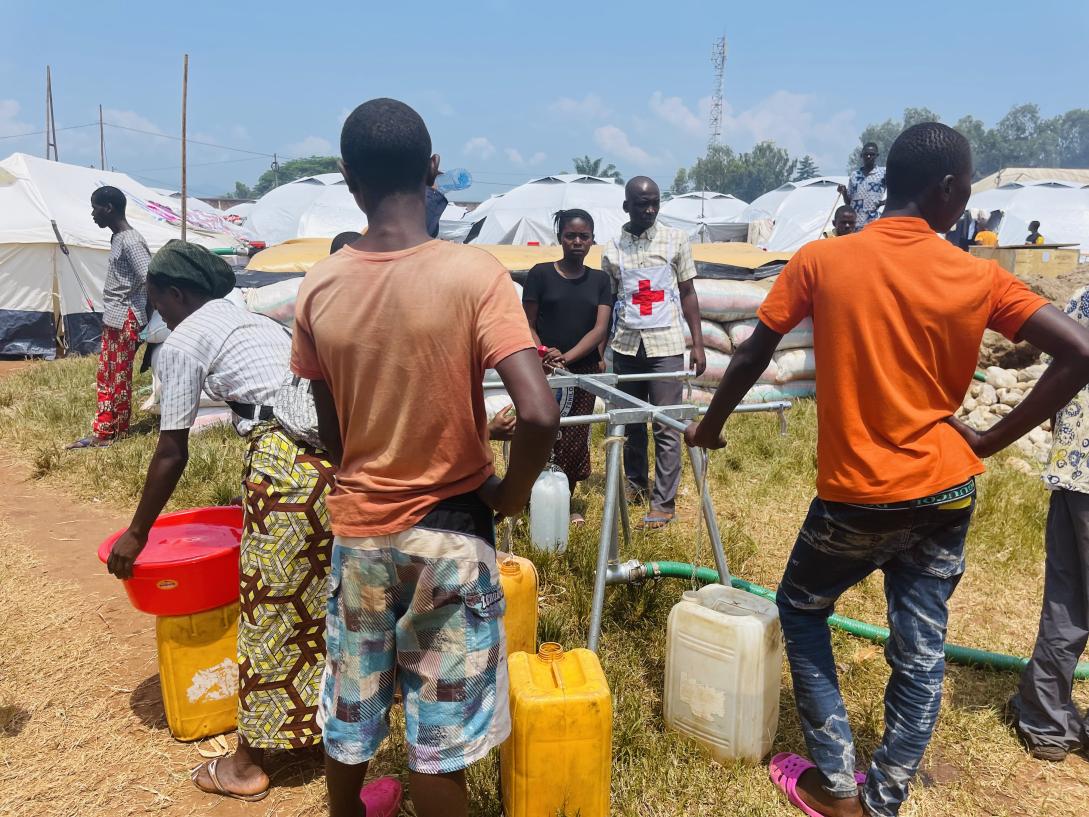- Details
- East Africa
- 755
The ongoing armed conflict in the Democratic Republic of the Congo (DRC) has triggered a mass exodus of people, with over 65,000 people fleeing to Burundi—a number that continues to rise daily. Most are escaping violence in the eastern DRC provinces of North and South Kivu. Many refugees face dire conditions, including overcrowded shelters and inadequate sanitation. The influx of refugees has further intensified existing challenges, putting additional strain on the local economy and infrastructure while exacerbating the already precarious living conditions of host communities.
The EU funding will bolster the efforts of the Burundi Red Cross Society in delivering much-needed relief including emergency shelter, essential relief supplies, clean water, healthcare and hygiene support. The project will also set up humanitarian service points at key entry locations, and enhance protection and safeguarding measures for at-risk populations.
This four-month project, to be implemented until the end of June 2025, is expected to provide immediate life-saving services to at least 6,000 asylum seekers, while benefitting a total of 20,000 displaced individuals and host community members. The funding is part of the EU’s overall contribution to the Disaster Response Emergency Fund (DREF) of the International Federation of Red Cross and Red Crescent Societies (IFRC).
Background
The European Union together with its Member States is the world's leading donor of humanitarian aid. Relief assistance is an expression of European solidarity towards people in need around the world. It aims to save lives, prevent and alleviate human suffering, and safeguard the integrity and human dignity of populations affected by natural disasters and human-made crises.
Through its European Civil Protection and Humanitarian Aid Operations, the European Union helps millions of victims of conflicts and disasters every year. Headquartered in Brussels and with a global network of field offices, the EU assists to the most vulnerable people, based on humanitarian needs.
The European Commission has signed a €14.5 million humanitarian contribution agreement with the International Federation of Red Cross and Red Crescent Societies (IFRC) to support the Federation's Disaster Response Emergency Fund (DREF). Funds from the DREF are mainly allocated to “small-scale” disasters – those that do not give rise to a formal international appeal.
The Disaster Response Emergency Fund was established in 1979 and is supported by contributions from donors. Each time a National Red Cross or Red Crescent Society needs immediate financial support to respond to a disaster, it can request funds from the DREF. For small-scale disasters, the IFRC allocates grants from the Fund, which can then be replenished by the donors. The contribution agreement between the IFRC and ECHO enables the latter to replenish the DREF for agreed operations (that fit in with its humanitarian mandate) up to a total of €14.5 million. EEAS






